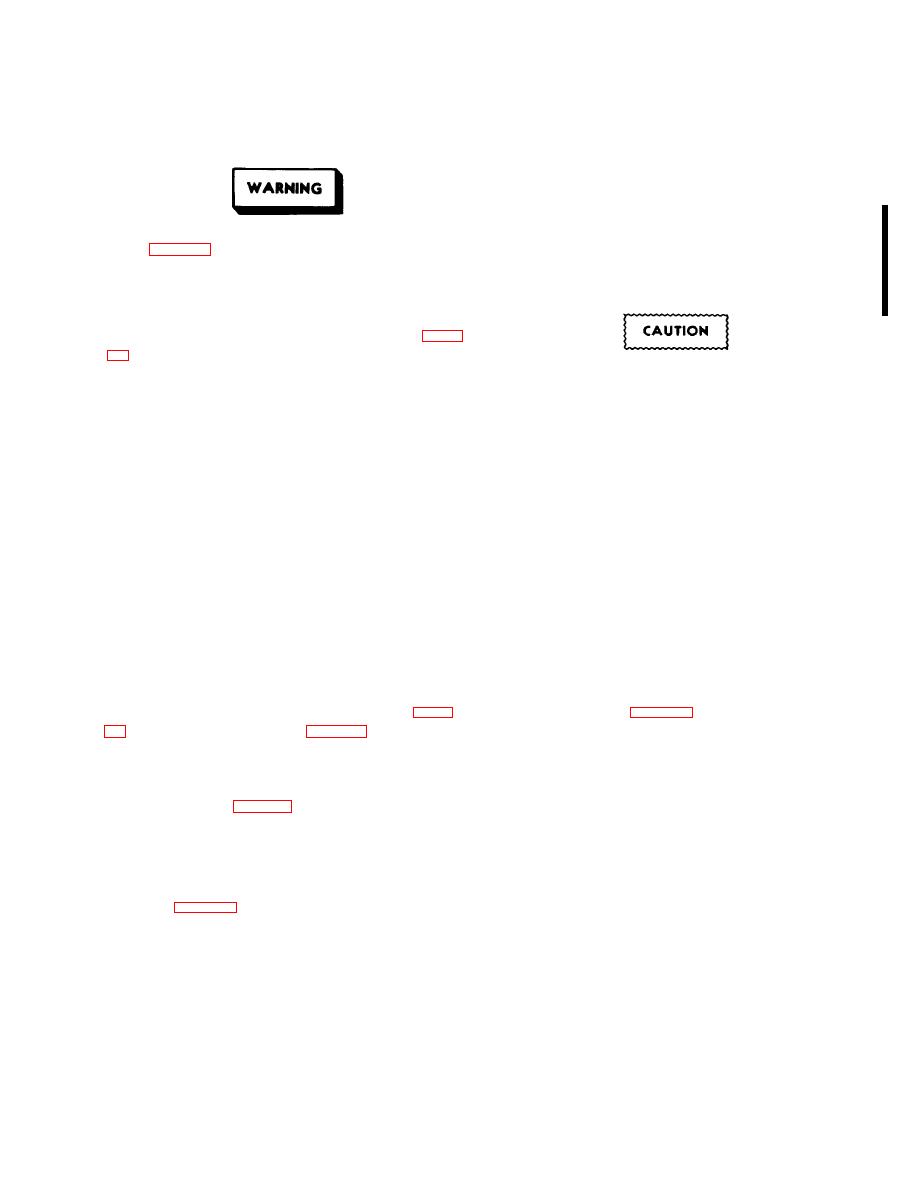 |
|||
|
|
|||
|
|
|||
| ||||||||||
|
|
 TM
9-2350-238-20-2
G E N E R A L PROCEDURES.
2-7.1
(1) Do not spill solvent, fuel, or
lubricants on rubber parts. Solvent, fuel, and
may
damage
rubber
parts.
a. G e n e r a l
Cleaning
Instructions.
(2) Do
not
use
turbine
fuel,
diesel
fuel,
gasoline, paint thinner, or benzene (benzol)
for cleaning. These liquids may cause per-
Dry cleaning solvent (SD2) (item 10,
sonal injury.
protective goggles and gloves and use
(3) A l w a y s w e a r p r o t e c t i v e c l o t h i n g
only in well ventilated areas.
when using solvent. Solvent may dry skin.
(1) Use dry cleaning solvent (item 10, appx
Improper use of high pressure
If a water hose is available, it may be used to take
water hose or steam cleaner can
off heavy dirt. If a steam cleaner is available, it
damage seals and electrical com-
may be used to take off any remaining dirt. Make
ponents resulting in equipment
sure steam or water does not enter roadwheel
failure. Use high pressure water
bearings, shock absorbers, optics, hatches, and
only
on
suspension
system.
powerpack openings. After water or steam
cleaning, lubricate vehicle. Check all lubricant
(4) Do not clean inside cab with high
reservoirs for water droplets. If water is found,
pressure steam or air. Some parts inside cab
drain and refill. Clean grease, oil, or dirt from all
may rust or be damaged.
metal parts with dry cleaning solvent, cleaning
compound, or equivalent.
(5) When washing outside of vehicle,
close and lock all hatches. Cover periscope
with plastic
sheets.
Remove
covers
after
(2) Use mild soap and water to clean or
washing.
wash parts not made of metal. Rinse thor-
oughly after cleaning with water and then
(6) Do not use polishing cloths, liquids,
dry.
pastes, or other rough cleaners to clean
instrument lenses or periscopes lenses. Use lens
(3) Remove rust or dirt from fine-machined
paper (item 15.1, appx C) to clean lenses. Take
surfaces with dry cleaning solvent (item 10, appx
off fingerprints, oil, and dirt with lens cleaning
compound and lens paper.
Do not use any other material. Be careful not to
change the dimensions of parts when rubbing off
(7) If anything looks wrong and cannot
rust. Coat bare metal surfaces, after cleaning,
be fixed, report it on DA Form 2404. If
with CLP (item 5, appx C).
something looks dangerous or may cause
equipment damage, report it to the
maintenance supervisor right away.
(4) Nameplates, caution plates, and in-
struction plates may rust quickly. When they
c. S e r v i c e s . S e r v i c e s p e r f o r m e d
by the
are rusty, clean parts and coat them with CLP
unit maintenance mechanic consist
of the
(item 5, appx C).
following tasks:
b. P r e c a u t i o n s . T h e f o l l o w i n g p r e c a u t i o n s
will help prevent personal injury or damage to
(1) Adjusting. Make
all
necessary
adjust-
ments and alinements.
equipment.
Change 1
|
|
Privacy Statement - Press Release - Copyright Information. - Contact Us |